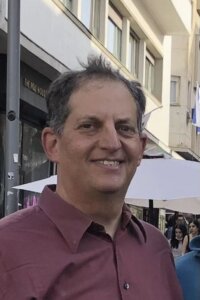
Photo Essay‘I don’t want him, on his last ride, to be alone’: Thousands gather in Israel for the funeral of slain Israeli-American
Elan Ganeles, who was raised in West Hartford, Connecticut, and became a ‘lone soldier’ in Israel, was shot on the road between Jericho and the Dead Sea
Graphic by Angelie Zaslavsky
Photo Essay‘I don’t want him, on his last ride, to be alone’: Thousands gather in Israel for the funeral of slain Israeli-American
Elan Ganeles, who was raised in West Hartford, Connecticut, and became a ‘lone soldier’ in Israel, was shot on the road between Jericho and the Dead Sea
Ra’anana, ISRAEL — Thousands of people, many of whom did not know Israeli-American Elan Ganeles, 26, who was shot Monday traveling on a road near the Dead Sea, gathered in the central Israeli city of Ra’anana Wednesday to attend his funeral.
Raised in West Hartford, Connecticut, Ganeles had joined the Israeli Defense Forces as a “lone soldier” and spent many weekends during his service in Ra’anana, where his father’s brother and aunt lived. He had moved back to the U.S. to attend Columbia University, from which he graduated last year, and was back in Israel to attend a wedding this week.
He was shot on a road near the West Bank city of Jericho amid rising violence between Palestinians and Israeli Jews. Israeli security forces Wednesday captured three Palestinians who allegedly took part in the shooting.
Ganeles’ family decided to bury him in Ra’anana, home to many who have made aliyah from the U.S. and other English-speaking countries, to honor their son’s devotion to Israel. As is typical at funerals for lone soldiers, who are not native to Israel, mourners often include many who want to show respect for those who were under no obligation to join the IDF.
The funeral took place at the Old Ra’anana Cemetery Wednesday afternoon. Reporter Hillel Kuttler spoke to and photographed mourners before and after the service.
1 / 12
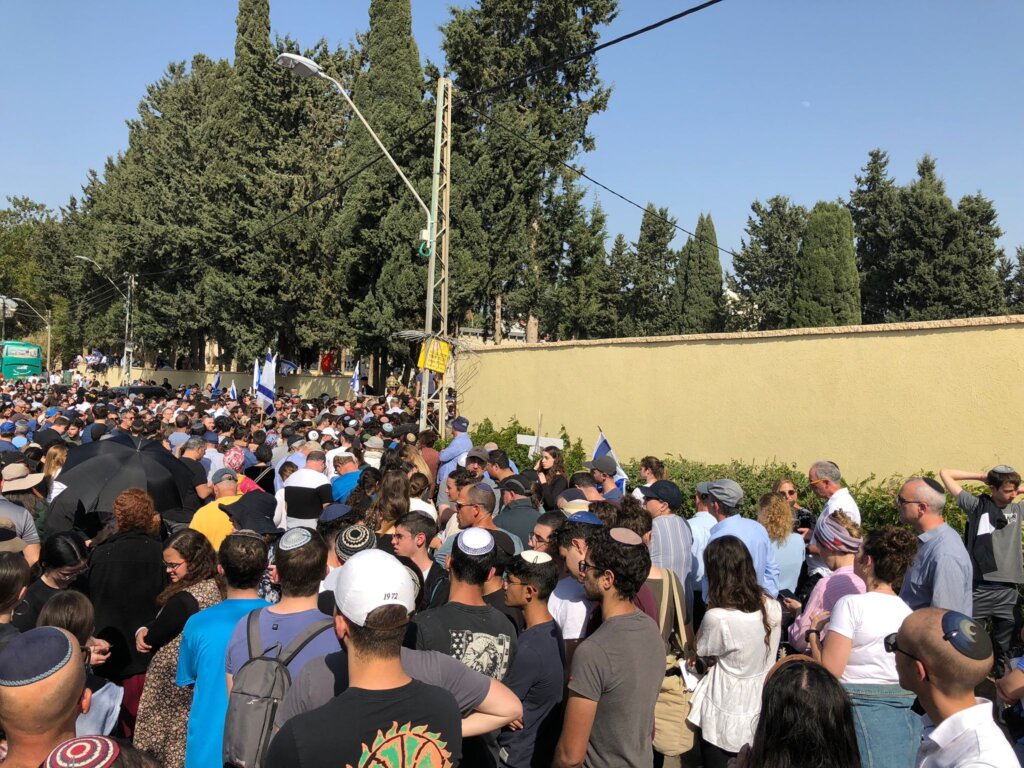
The crowd outside the walls of the Klausner cemetery, where they had come to pay their respects to U.S.- Israeli citizen Elan Ganales, a lone soldier killed in a terrorist attack on Monday, Photo by Hillel Kuttler
A crowd gathers outside the wall of the Old Ra’anana Cemetery to pay respects to Israeli American Elan Ganeles.
2 / 12
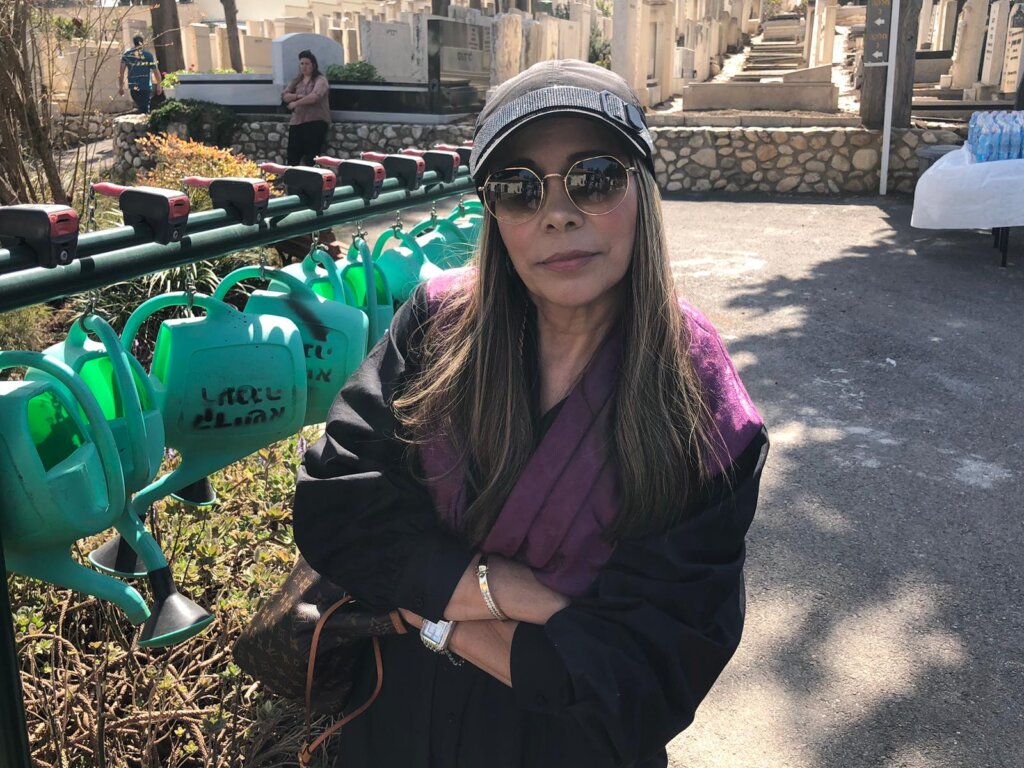
Photo by Hillel Kuttler
Nava Goldberg, who was born in Israel but now lives in West Hartford, Connecticut, Ganeles’ hometown, said she came to Israel to attend the same wedding he had come for. She stayed to attend Ganeles’ funeral and is pictured at the cemetery where he was buried before a row of watering cans, used to water flowers around graves.
“We were in the hall in Ma’ale Hahamisha, outside Jerusalem,” Goldberg said. “It was right after the chuppah. The mother of the bride collapsed. I said, ‘Ilana, what happened?’ She said, ‘Elan was killed.’”
“It doesn’t make sense,” Goldberg continued. “Elan and my son Liron were friends since nursery school. His mother, Carolyn, was the doctor of my kids.”
3 / 12
About 125 people on both sides of Klausner Street, leading to the cemetery’s entrance, held banners and sang before the funeral. One of the songs, V’hi She’amda, is about how enemies of the Jewish people have through the generations sought to destroy them, but God has saved them.
4 / 12
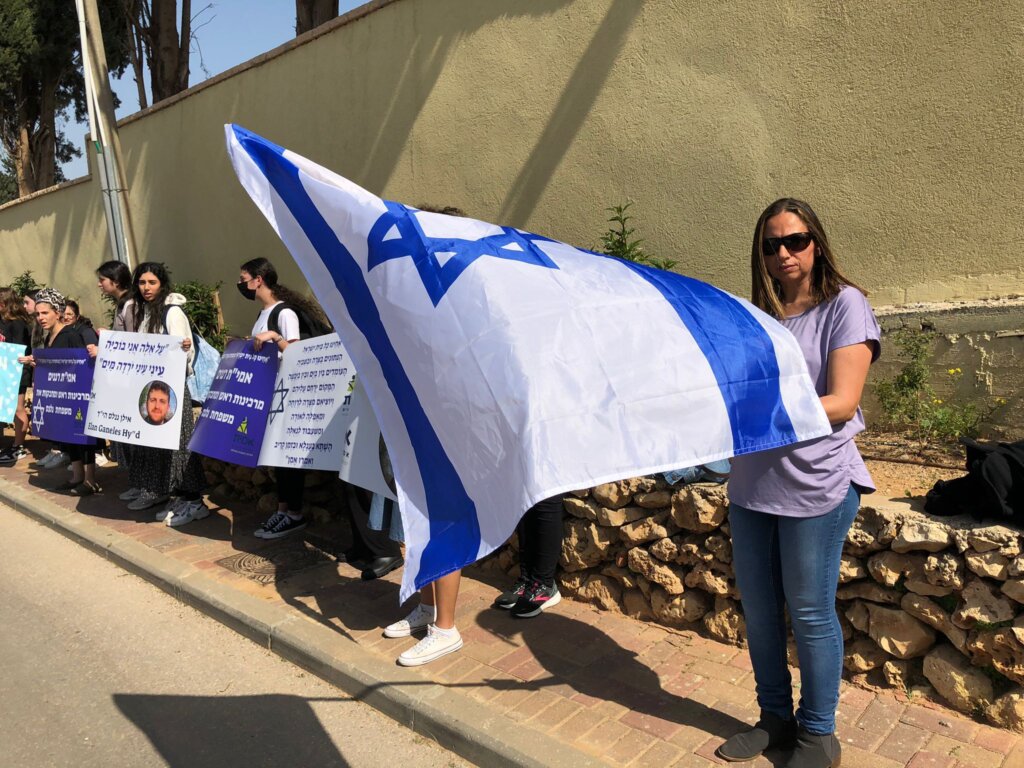
Photo by Hillel Kuttler
Revital Amit, 47, a nutritionist from Ra’anana, returned to Israel a year ago after a decade living in Chandler, Arizona. She said she came to Ganeles’ funeral “to be part of the country.”
“I don’t want him, on his last ride, to be alone. I want to give him my support,” she said, explaining her decision to attend the funeral. “Something happened, and it’s like your own child. Everyone is family, all of us. My oldest child is supposed to go into the army in three years.”
5 / 12
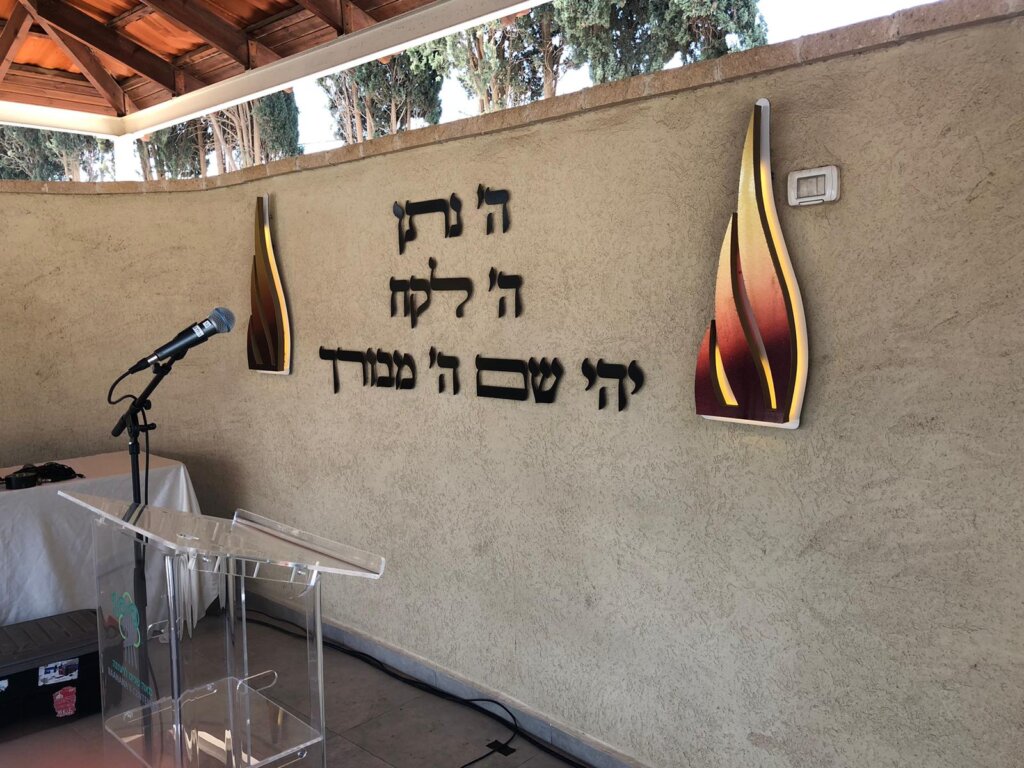
Photo by Hillel Kuttler
The site of the funeral within Ra’anana’s Old Cemetery, about an hour before it started.
The Hebrew on the wall translates to “God giveth. God taketh. Blessed be the name of God.”
6 / 12
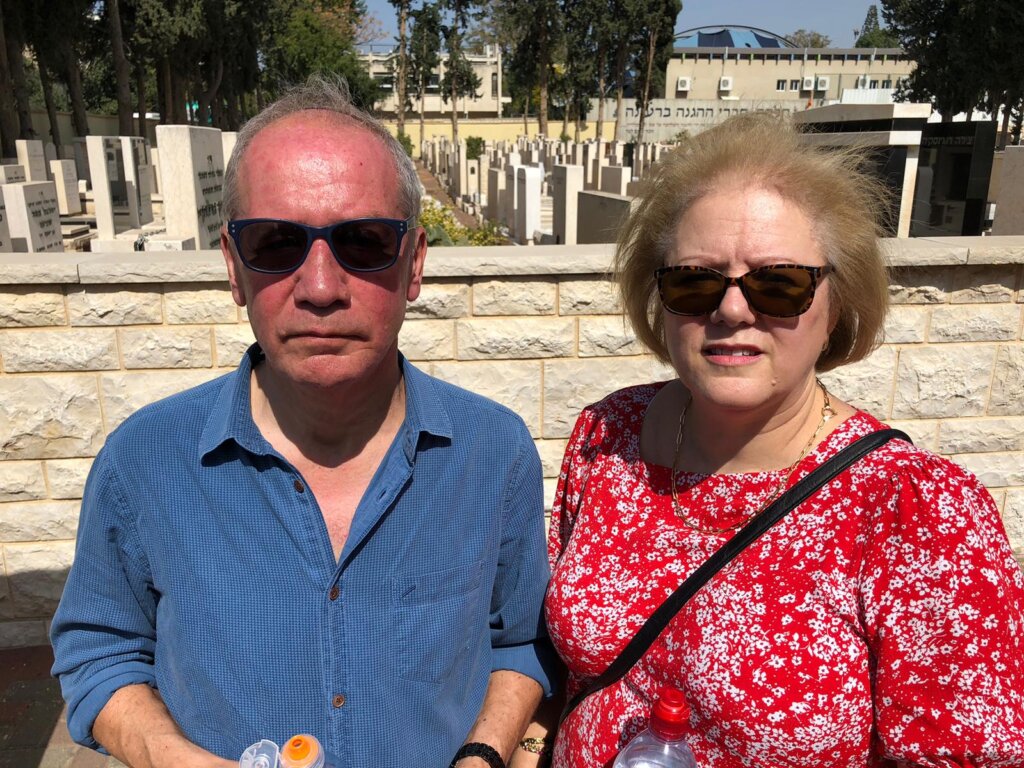
Photo by Hillel Kuttler
Danny and Suzanne Landau, natives of London who live in Tel Mond, Israel, knew Ganeles and attended the funeral.
“When we made aliyah in 2015, our boys went to ulpan at Kibbutz Sde Eliyahu. Elan was a student there, too,” said Suzanne Landau. “He’d come with my boys for dinner. I used to call him The Soup Boy because he always asked for another bowl of soup. A lovely young man. He had a good, dry sense of humor. My son Michael just saw him in America. He stayed with him at Columbia. What a shock.”
7 / 12
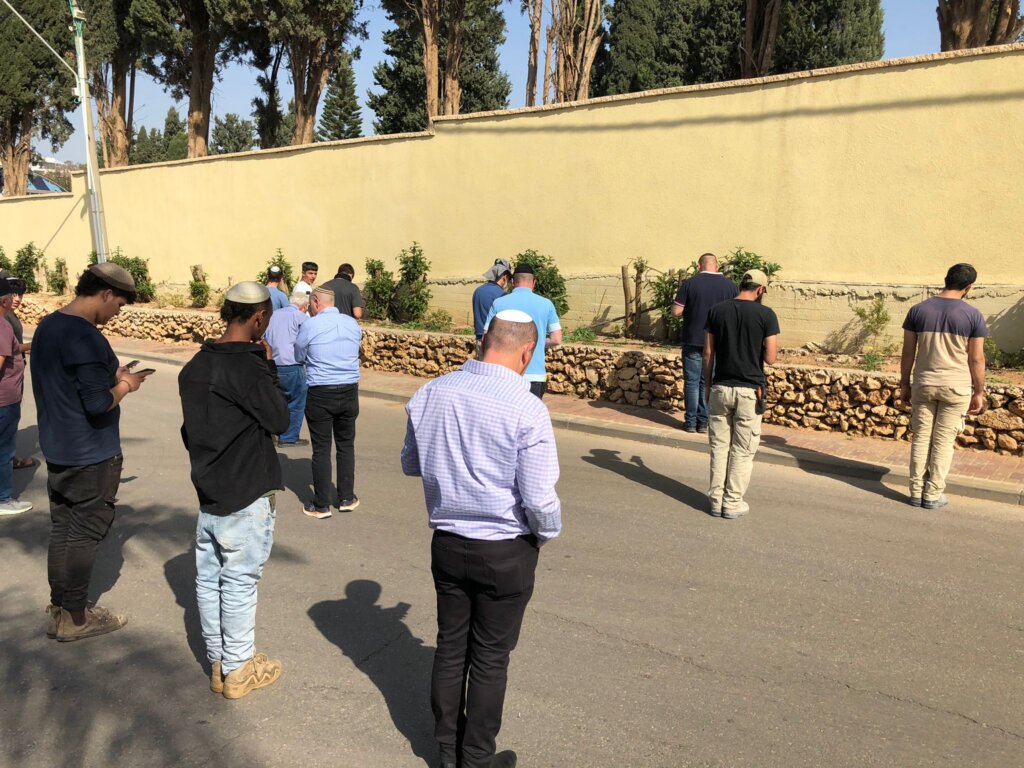
Photo by Hillel Kuttler
Outside the cemetery walls, mourners pray the Mincha service.
8 / 12
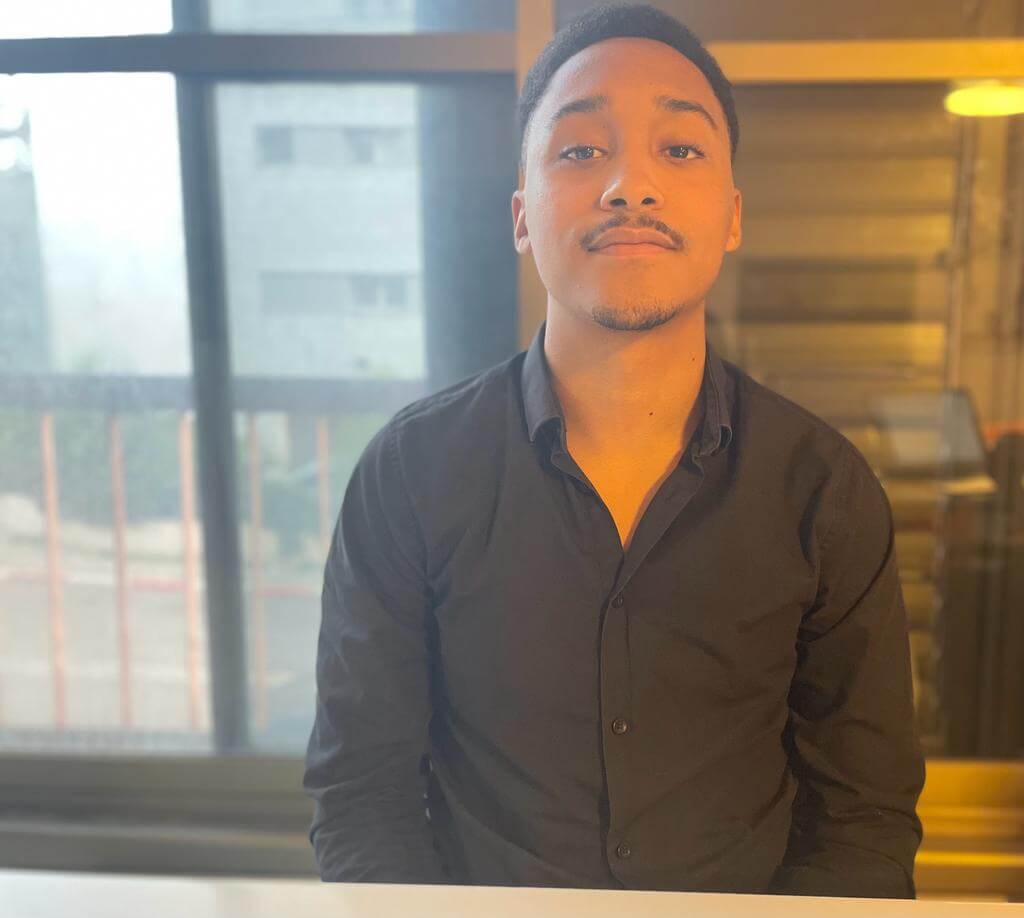
Photo by Hillel Kuttler
He was my “brother,” Kalev Dyer said of Elan Ganeles. “We made aliyah at about the same time, were at Kibbutz Ulpan together, then roomed together with two other guys near Tel Aviv.”
Dyer, 26, who came to the funeral from his home in Herzliya, was with Ganeles at an engagement party in Ramat Gan on Saturday. “He was very happy to be [back] in the country.” They planned to get together again Thursday night.
Dyer, who is originally from Toronto, said he and Ganeles were working on a start-up in the financial tech sector with one other partner. With Ganeles gone, he said he feels more moved than ever to launch the project they started.
9 / 12
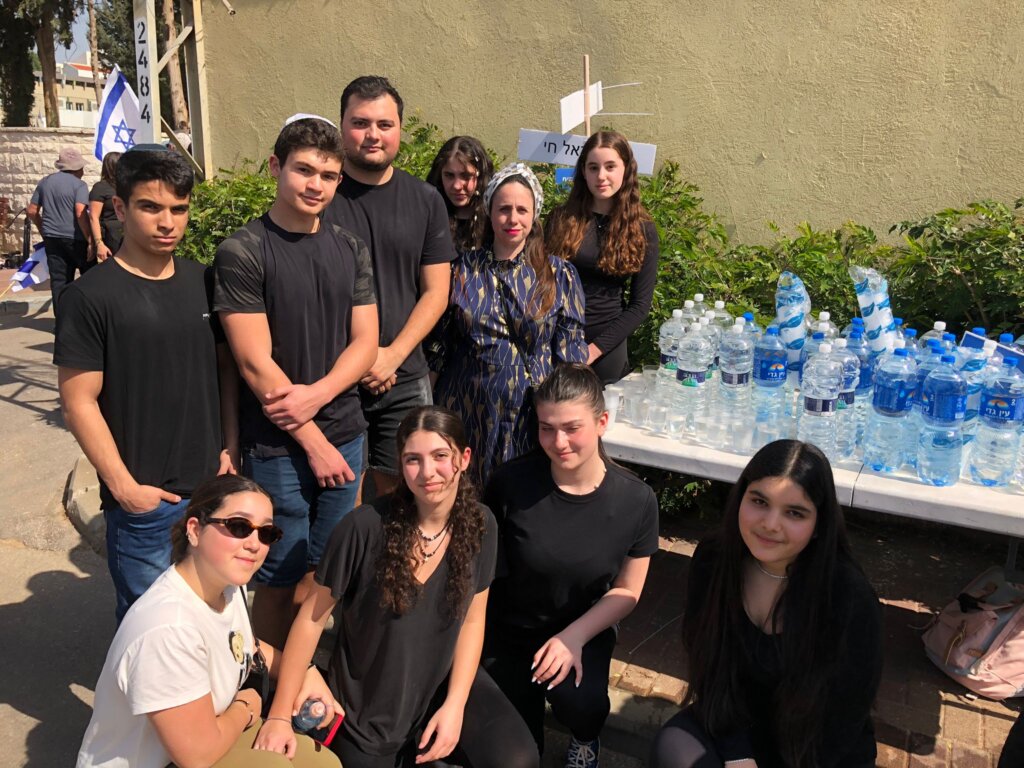
Photo by Hillel Kuttler
“I also was a lone soldier,” said Alon Danses, back row, third from left, who brought a group of Ra’anana youth to Elan Ganeles’ funeral to set up a water table on the warm, sunny day.
Danses, a 23-year-old from Ra’anana, made aliyah from Argentina.
“At the end, we’re all Jews,” he said. “We’re all part of the large story of Israel. I came today to identify, to feel I’m part of something larger than me.”
“I brought 20 volunteers and we’re running the water table because water is the basis of life,” he added. “We hope that by giving water to people, we can help them be part of everything that’s happening here today.”
10 / 12
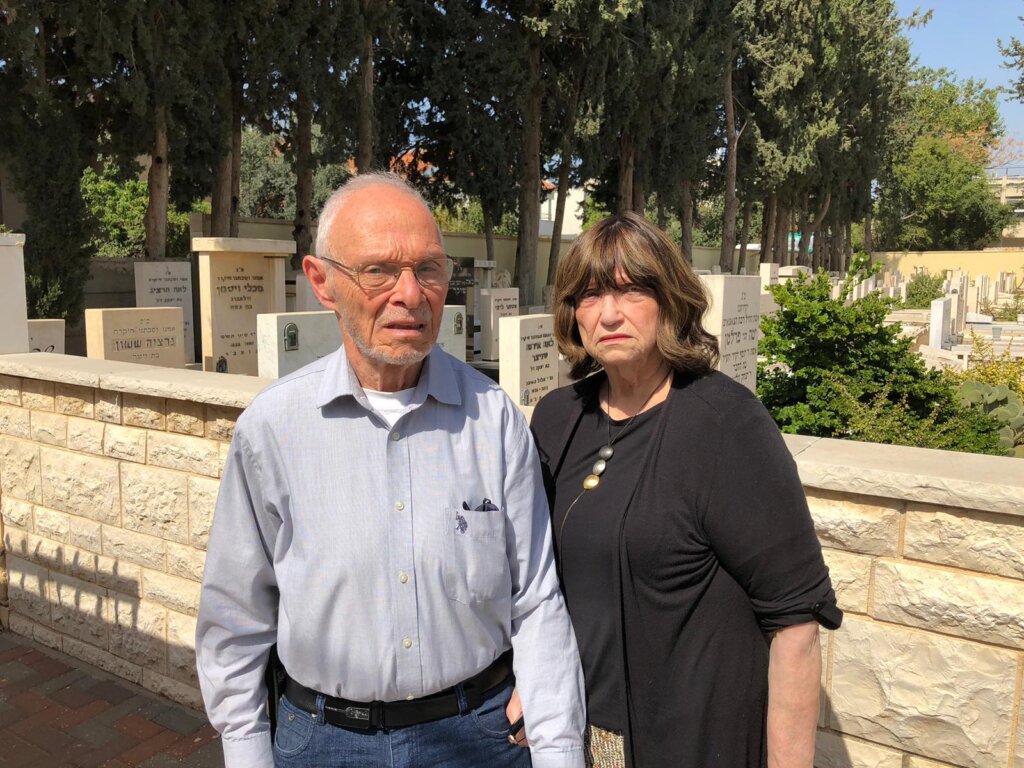
Photo by Hillel Kuttler
Chaya and Chaim Waxman, who now live in Jerusalem, went to the same synagogue as Elan Ganeles’ father, Andrew, when they lived in Far Rockaway, in New York City, and Andrew Ganeles and his siblings grew up with the Waxmans’ children.
“We felt we had to be here. This is what you do in Israel,” said Chaya Waxman, “We’ve been to other funerals in Israel, where we knew no one.”
She noted that she has a grandson in the Israeli army, “so it hits very, very close.”
11 / 12
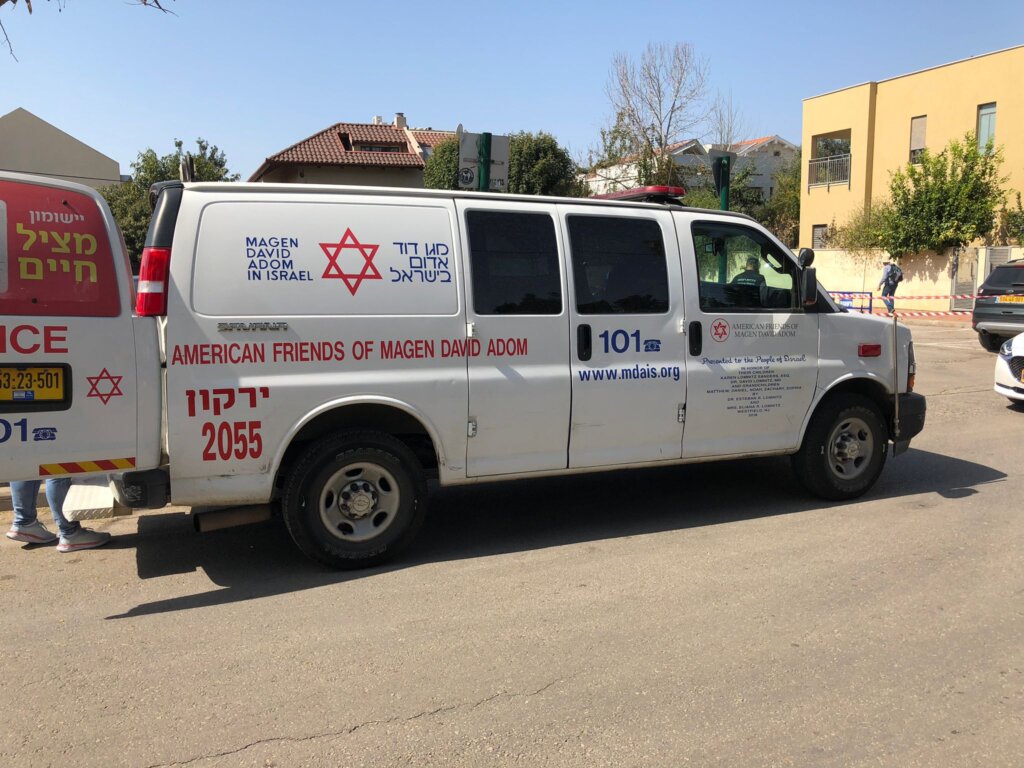
As is common at large Israeli funerals, an ambulance is parked at the cemetery in case people faint, or worse.
12 / 12
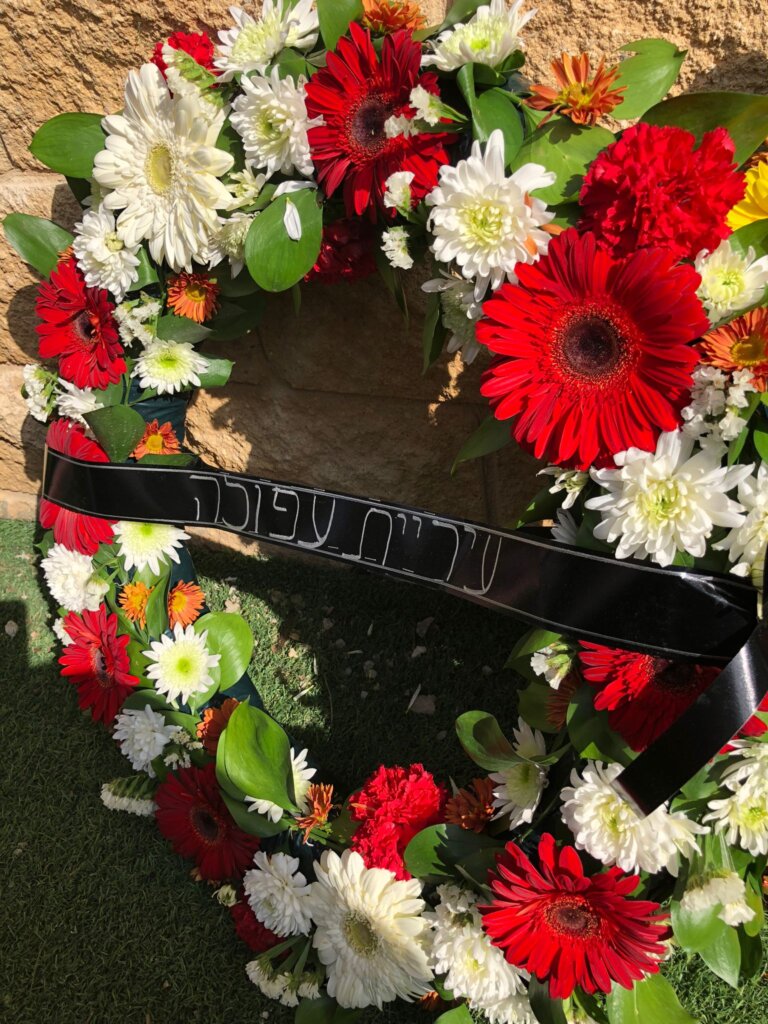
Photo by Hillel Kuttler
The city of Afula, in the north of Israel, sent a wreath to the funeral.
